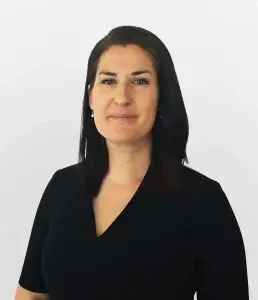
What is a trade mark?
A trade mark is a badge of origin that distinguishes a company’s goods and services from others and associates trading reputation and goodwill to the business. This means trade marks are particularly valuable assets which should be protected.
What types of trade marks can be protected?
A trade mark can be anything that allows customers to distinguish your goods and services from those of others. Typically trade marks include words, logos, shapes, patterns, colours, and sounds.
A trade mark must be unique and distinctive to ensure it is not confused with an existing registered trade mark, and it cannot be descriptive of the goods and services it is associated with. For example, you would struggle to call a new tennis racket brand ‘tennis bats’ or ‘YoNets’ which arguably could easily be confused phonetically with the existing brand Yonex™.
What is the process of registering a new trade mark?
An application must be prepared and filed at the Intellectual Property Office of the country or region you are seeking to register the mark in, e.g. the UK or European Union. It is vital the correct class/es of goods and services is/are selected when filing the application to ensure the scope of protection conferred by the registration is as robust as possible. Therefore, it is advisable to instruct a registered trade mark attorney to file and handle the application for you.
How much does it cost to file a registered trade mark application?
Costs depend on the territory you are seeking protection in and also the number of classes of goods and services. As an example, the cost to prepare and file a UK registered trade mark application for a word mark in a single class of goods and services is typically around £700-800 and no further costs should be expected through to registration if no objections are raised by the Examiner or a third-party.
We advise also considering carrying out a UK clearance search to confirm, as best we can, there are no issues with any earlier rights before filing a trade mark application. It is then much more likely the application will go through to registration without any objections or oppositions which will avoid any additional and unforeseen costs on top of the fixed filing fee. The cost to carry out a clearance search for a word mark in one class is around £800.
How long can a registered trade mark last?
Registered trade marks can in theory last forever but must be renewed every ten years. However, if you never commercialise your trade mark or stop using the trade mark, interested third parties can apply to have it removed from the Register.
Do I need an attorney to register a trade mark?
As mentioned above, ensuring the correct form of mark, such as a word, logo or both, is protected and also for the correct class/es of goods and services, is vital so it is advisable to contact a qualified trade mark to guide you through the process. Furthermore, an objection may be raised by the Intellectual Property Office and/or a third party may oppose your application which will require a detailed response and a qualified trade mark attorney is of course best placed to respond accordingly on your behalf. Having a qualified trade mark attorney onboard from the beginning also ensures you are reminded about key deadlines after filing the application and no deadlines are unintentionally missed.
Yes, of course. Our trade mark attorneys can work with you to determine if an infringement has taken place and then advise what action should be taken.
We would be happy to discuss the situation and advise accordingly. Our trade mark attorneys can guide you through the process of assessing whether or not an infringement has actually occurred and how best to move forwards in the most cost effective manner.

Our Trade Mark Services
Our specialist trade mark attorneys can assist you in the following ways:
- Carry out a full audit of your existing brand names and logos and advise if any gaps exist in terms of value and protection;
- Perform clearance searches before launching a new product or service under a new brand name or logo, and/or before filing a new registered trade mark application;
- Prepare and file new registered trade mark applications in the UK and/or overseas;
- Manage the application process for you through to registration and future renewals;
- Manage new or existing trade mark portfolios, such as monitoring renewal fee deadlines and attending to renewal fee payments, recording changes of ownership, address, etc.;
- Assist you to successfully enforce your trade mark rights against an alleged infringer;
- Carry out infringement and validity analyses to determine if you infringe a third-party trade mark and/or if the third-party trade mark was validly registered and therefore even enforceable;
- Prepare and file oppositions against third party applications or registrations;
- Support in-house trade mark attorneys in relation to their trade mark portfolios;
- Support overseas trade mark attorney firms with their client’s UK and European trade mark matters; and
- Due diligence of a seller’s IP portfolio to support a potential corporate acquisition.
![]()
Your Trade Mark Attorney
If you would like to find out more about protecting or enforcing your trade mark, please do get in touch – we would be delighted to speak to you.
Contact usClient Testimonials
We value our clients and what they say about us.
FAQs
A registered trade mark can be owned by an individual, a limited company or a partnership. If you are sole proprietor, the applicant and owner of a registered trade mark will typically be you as an individual, but if the trade mark is associated with a registered company, the company will be the applicant and owner of the registered trade mark.
After filing a UK registered trade mark application, it will be examined by an Examiner at the Intellectual Property Office, usually within two weeks, who will search for any similar trade marks. If they find any, they will issue a communication and set a deadline to respond with comments. If no similar trade marks are identified and no objections raised, the application will be published around two months after filing the application. If your application is not opposed by any third parties, it will be registered around two weeks later. If the application is opposed, the typical options are to withdraw the application or defend the application legally which may be costly.
You may wish to withdraw the application and come up with a new brand name or logo and file a new registered trade mark application. Our trade mark attorneys can advise accordingly.
Yes, trade marks are a territorial right meaning you need a registered trade mark covering a particular country or region to prevent others using an identical or similar mark for the same class of goods and services without your consent. We work with a trusted and well-established network of overseas trade mark attorneys to meet our clients’ international interests and requirements. There are various mechanisms and options to register trade marks overseas and our qualified trade mark attorneys can advise accordingly at the appropriate time in this regard.
A ™ symbol next to a trade mark generally means that the user of the trade mark is claiming rights to the brand without having registered the mark. The ™ symbol has no legal significance in the UK.
An ® symbol next to a trade mark can only be used by an owner of a trade mark that been registered in the UK and using the ® symbol next to a mark that has not been registered constitutes a criminal offence under the Trade Marks Act 1994.
However, the legal positions of using the ™ or ® symbols differ from country to country so it is advisable to consult a qualified trade mark attorney if you are considering using a trade mark across multiple countries to avoid any legal consequences.
It is generally more difficult and costly to successfully enforce your trade mark rights against an infringer without having registered the trade mark.
Get in touch
Please do pick up the phone, drop us an email, or request a callback. We look forward to hearing from you.

